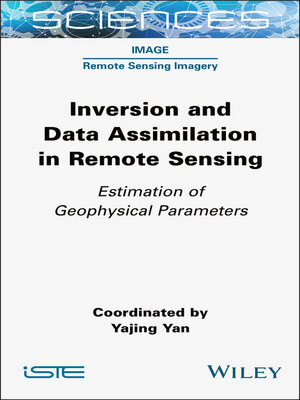Inversion and Data Assimilation in Remote Sensing
ebook ∣ Estimation of Geophysical Parameters · ISTE Consignment
By Yajing Yan

Sign up to save your library
With an OverDrive account, you can save your favorite libraries for at-a-glance information about availability. Find out more about OverDrive accounts.
Find this title in Libby, the library reading app by OverDrive.



Search for a digital library with this title
Title found at these libraries:
| Library Name | Distance |
|---|---|
| Loading... |
Remote sensing data are now the primary sources for observing Earth and the Universe. Data inversion and assimilation techniques are the main tools for estimating and predicting the geophysical parameters that characterize the evolution of our planet and the Universe, using remote sensing data.
Inversion and Data Assimilation in Remote Sensing explores recent advances in the inversion and assimilation of remote sensing data. It presents traditional and current neural network methods, as well as a number of topics where these methods have been developed or adapted to suit the specific nature of the field. The assimilation section covers prediction problems in volcanology and glaciology. Lastly, the inversion section covers biomass inversion using SAR images, bio-physio-hydrological inversion in coastal areas using multi- and hyperspectral images, and astrophysical inversion using telescope data.
Inversion and Data Assimilation in Remote Sensing explores recent advances in the inversion and assimilation of remote sensing data. It presents traditional and current neural network methods, as well as a number of topics where these methods have been developed or adapted to suit the specific nature of the field. The assimilation section covers prediction problems in volcanology and glaciology. Lastly, the inversion section covers biomass inversion using SAR images, bio-physio-hydrological inversion in coastal areas using multi- and hyperspectral images, and astrophysical inversion using telescope data.







